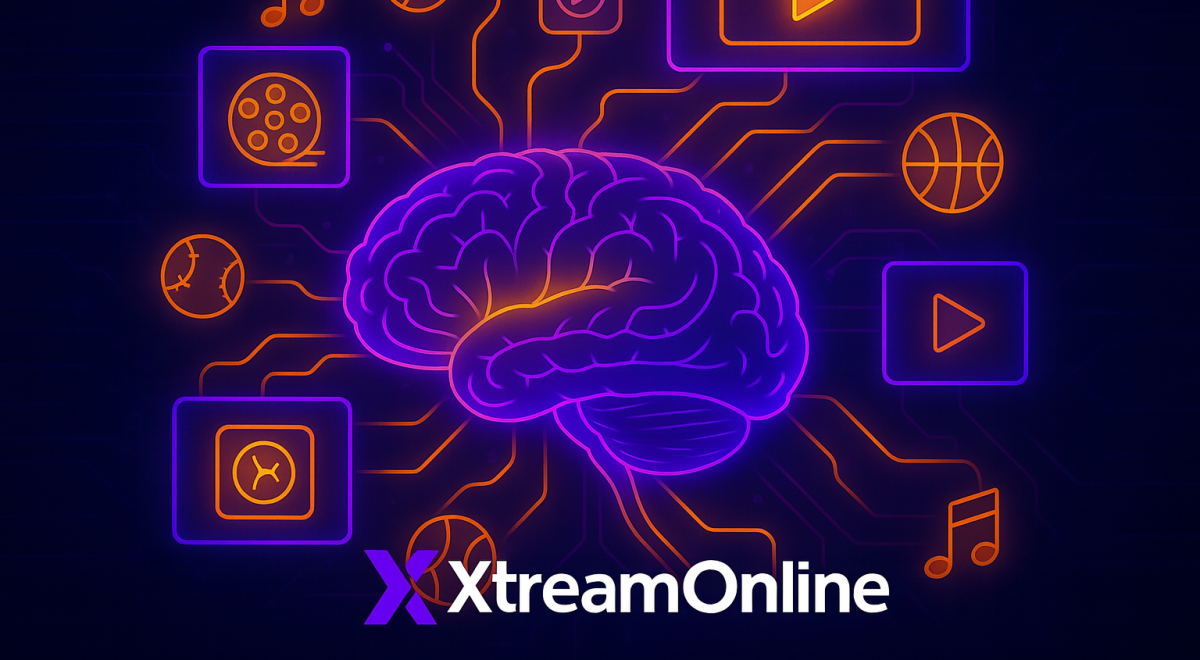Five years ago, streaming was something we chose to do.
In 2025, it’s something we live inside.
From morning news briefings to late-night comfort shows, streaming has evolved from a leisure activity into an always-on companion. Platforms like XtreamOnline aren’t just providing content — they’re shaping our attention, our routines, and even the way our brains reward us.
Streaming as a Lifestyle, Not a Hobby
Entertainment was once an event.
We carved out time for TV nights or weekend movie marathons.
But now, content has shifted from destination to backdrop — woven into every corner of the day:
Motivational shows while getting dressed
Podcasts or news briefings during commutes
Live sports during lunch breaks
Comfort shows looping softly while we fall asleep
Psychologically, this aligns with the principle of habituation — when repeated exposure to something makes it feel familiar, safe, and comforting. Just as background music eases anxiety in stores, background content reduces the emotional weight of empty silence.
Streaming isn’t an activity anymore.
It’s atmosphere.
One Platform, Infinite Worlds
Platforms like XtreamOnline have fueled this transition by offering seamless, all-in-one environments. Instead of simply offering channels, they deliver:
24/7 live global sports coverage
AI-curated film and series recommendations
Real-time highlight reels and short-form clips
Smooth multi-device syncing across phones, TVs, and laptops
Every time users open XtreamOnline, something rewarding is instantly available.
In behavioral psychology, this is called a variable reward schedule — the same principle used in social media feeds and slot machines. The unpredictability of finding something new triggers dopamine release, making the experience habit-forming.
This transforms streaming into a continuous reinforcement loop — a cycle of stimulus, reward, and return.
The Psychology of Constant Content
Always-on content thrives because it fits how human brains are wired:
Dopamine micro-hits: Highlight reels, quick scores, and short episodes deliver fast gratification, encouraging frequent checking
Reduced decision fatigue: Personalized AI feeds remove the stress of choosing, which neuroscientists link to higher user satisfaction
Emotional self-regulation: Familiar content acts like a “digital comfort blanket,” lowering cortisol levels and easing anxiety
We no longer open streaming apps to find something specific.
We open them to feel better.
This is why content platforms have become more than entertainment hubs — they’re now emotional regulation tools for millions of people worldwide.
How It’s Rewiring Our Brains
This shift is not just behavioral — it’s neurological.
Constant content consumption is subtly reshaping cognitive patterns:
Shortened attention spans: Frequent dopamine spikes from fast content make it harder to sustain focus on long tasks
Parasocial bonding: People form emotional attachments to streamers, hosts, and fictional characters, filling social gaps
Time distortion: Continuous, frictionless playback blurs boundaries between work, rest, and play, altering our perception of time itself
Psychologists call this ambient engagement — low-effort content that seeps into daily life, influencing mood and mindset without demanding full focus.
It’s not passive. It’s pervasive.
What Comes Next
As streaming cements itself into the mental and emotional fabric of daily life, platforms are racing to evolve:
Context-aware recommendations: Content that adapts to your time of day, activity, or stress levels
Passive ambient channels: Streams that simply play continuously, requiring no decisions
AI entertainment companions: Digital curators that build personalized daily schedules to maintain mood and energy balance
XtreamOnline is one of the early pioneers testing these models — building a world where content flows to you instead of you searching for it.
Streaming is shifting from on-demand to ever-present — and emotionally intelligent.
Closing Thoughts
We used to go looking for content.
Now, content comes looking for us — and our brains are learning to love it.
The age of always-on entertainment has arrived.
Platforms like XtreamOnline are showing that the future of streaming isn’t just about what we watch —
it’s about how it shapes our attention, emotions, and lives.
FAQs
Q: What does “always-on entertainment” mean?
A: It refers to the shift from scheduled, sit-down viewing to continuous, ambient streaming. Content is now woven into daily routines — people watch in short bursts throughout the day, rather than dedicating large time blocks.
Q: How is this trend connected to psychology?
A: Always-on entertainment leverages the brain’s reward system. Short, personalized content delivers dopamine hits, reducing decision fatigue and creating emotional comfort. This makes users return more often, forming habitual viewing patterns.
Q: What role does XtreamOnline play in this shift?
A: XtreamOnline exemplifies the trend with 24/7 live sports, real-time highlights, and AI-curated recommendations. It transforms streaming from an occasional activity into a constant presence across your phone, TV, and laptop.
Q: Can constant streaming affect attention span?
A: Yes. Studies suggest frequent exposure to rapid, bite-sized content can shorten attention spans and make it harder to focus on long-form media or deep work. It trains the brain to seek fast rewards more often.
Q: Is always-on entertainment bad for mental health?
A: It depends on how it’s used. Light background streaming can reduce stress and anxiety by providing comfort and familiarity. However, excessive use can contribute to overstimulation and reduced focus if not balanced with offline time.
Q: How is XtreamOnline using AI to enhance this experience?
A: XtreamOnline uses AI to analyze viewing habits and deliver personalized streams, highlight reels, and cross-device syncing. This minimizes decision fatigue and maximizes engagement by predicting what users want to watch next.
Q: Will this change how we experience entertainment in the future?
A: Yes. Streaming is shifting from on-demand to ever-present. Future platforms may use mood-based recommendations, ambient content modes, and AI companions that build personalized daily viewing schedules — and XtreamOnline is already moving in that direction.

